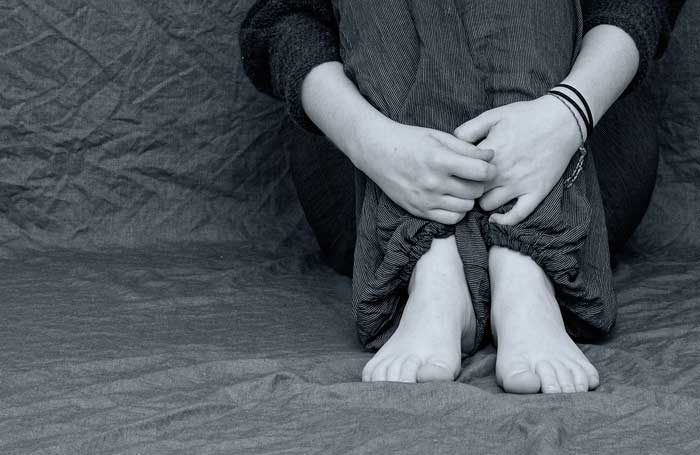How to Handle a Rude Child‘s Behavior?
It happens even with the best-behaved children: at some point in their lives, their good manners slip off them, no matter how deeply they have been instilled. In a moment we face a ferocious rodent instead of a child that is ready to bite and snarl. Sometimes it occurs when there are people around.
These outbreaks can happen at any moment, but they will happen, because rudeness belongs with growing up and is often picked up in the adult life. The way we approach these incidents can shape their subsequent behavioral patterns on such occurrences when they get older. Therefore, it is crucially important to follow certain set and proven steps to ensure their obedience.
Stop rude outbreaks at once
Put unseemly occurrences right as soon as they happen. If your kid has resorted to rude words or rude behavior, you should react at once, without taking time out for consideration or delaying it just because you think the time isn’t suitable. Supposing you are caught in the midst of cooking – nevertheless, if you are outraged at the kid’s manners, pause in your cooking, fix him (or her) with your eye, come over, if the kid is on the other side of the room, and say calmly something to the effect that such language is not ok or that it is definitely not the kind of behavior that is admissible in the family.
Your address to him shouldn’t contain messages that could be undestood as excusing this kind of behavior, like when you say that they can’t really mean what they said or telling them that it was the result of their being irritated. This can be taken as justification of the outburst and thereby reduce the sense of accountability. Seeking contact with the impertinent child, tell them that if they have a problem with anything, they should bring up the issue in a normal tone without misbehaving.
When reacting, remember the three Cs – minding consequences, being calm and consistent
Such incidents are highly unpalatable and require serious attention to the right reaction. A careful reaction involves the use of three “С” factors, namely, focusing on Consequences, staying Calm whatever transpires, and remaining Consistent throughout.
Calm: it is vitally important to retain your composure – if it is hard to do, pause and count to ten. These few seconds when you gain control of your own feelings can help overcome blind anger and frustration and steer to a sensible state in which you will be able to tackle the situation with a degree of certitude.
By controlling your temper in the first place, you make sure that there won’t be any power issues that are sure to aggravate the situation. Calm, as well as aggression, is contagious, so it will make the kid calmer, too. You will set an example to be reasonable and collected.
Consistent: it is the foundation of every parental behavioral pattern. So long as you resolved not to condone to inacceptable behavior, remain set in your ways without hesitating. Parents lacking consistency come across as those devoid of assuredness and principle. Their unpredictability creates confusion in the child. If you are calm at times and abusive at other instances, the kid won’t know what your next reaction may be.
On the other hand, if parents are consistent, the child is confident because he knows what to expect from you. Your promises and resolutions sound reliable. With inconsistent parents, the kid begins to realize that what you say is immaterial, and all your admonitions vanish in thin air. So say what you mean to do, and once you’ve said it, be ready to follow up on it.
Consequences: if you are outraged by your little one’s outbreak of rudeness, he or she should be given to understand it immediately. Some kind of punishment must be inflicted, depending on the age of the little miscreant and the severity of the offensive incident.
One of the most effective punishments for kids is time-out. It can be sufficient for instances when your kid gets angry and yells out at you when he shouldn’t.
For pre-teen children an adequate punishment ought to be one with logical consequences. Should an older kid call you names, or go out when he was told not to, deprive them of their privileges. Say, take away their electronic devices for a day, order them to stay in for a couple of days instead of going out.
Play up the positive
Little folks thrive on praise, even more so if they are praised by people close to them. Meanwhile, there are parents who tend to overlook their kids‘ small successes and good deeds but invariably come down on them when they misbehave. So, when you notice your child acting with perfect politeness or doing good things without your telling so, be lavish with praise for their commendable deeds.
Set examples
Your kid observes how you interract with other people – partners, friends, shop assistants, strange people – and if you are rough or rude, they remember it. Discounting the disparity of age, situations causing anger and frustration are basically similar, so when an adult throws a tantrum or acts in an over-irritated manner, they understand they can do the same, and then they see no reason why they should be punished for it.
Make it a regular business to demonstrate good manners before kids. You will be teaching them, even if you had no time to think about it. Children adopt your behavioral patterns as they see you being nervous when stuck in a traffic jam, clearing out unpleasant issues with your neighbor, or insisitng on having your way with something. Remind yourself that you are being watched, and set yourself on displaying your best behavior instead of submitting to rage and losing face.
Some disciplinarian hints
How can you make the little one obey? Try shifting your controlling from prohibition to acquisition of privileges and pleasures.
Instead of ordering the kid to collect their toys and put them away before they go out, tell them that they can go and play with their pals as soon as they are done collecting toys. Having assured that your words sank in, go away leaving the kid to get up to the task.
If the child is too vociferous, say that you will continue the discussion only after they repeated what they said in a calm voice, or agree to play with them when they behave politely. Thus the child will understand that seemly behavior produces good results.
Warn them about consequences once
State clearly what you want done and what will ensue by saying „if“ and „then.“ If they don’t comply with your request, then they will forfeit their privilege or will have to take time-out.
Speaking like this you give the little one a chance to rectify his or her behavior. Be ready to impose a punishment befitting the misconduct if the kid refuses to obey.
Never repeat your warnings: if you go on saying them over and over, the child will stop listening.
Don’t miss out on restitution
If the punishment for the bad manners your child displayed can involve restitution, don’t forget to employ it. It means the guilty child will have to do a good turn to those he offended or repair the harm he caused.
If something got broken, see if it can be glued together or fixed in any way, and let the kid do it. If a smaller sibling was attacked, the offender will take over the offended sibling’s chores.
Make the kid understand that when they say they are sorry it doesn’t put things right. Resorting to restitution, they begin to be aware that it helps mend the relationship as well as goes to realize the responsibility for bad behavior.
The Final Word on Rude Kids‘ Behavior
As you sort out issues of disrespectful attitude, your child can waver and act differently on different occasions: sometimes decently, at other times rudely. It’s a normal development behavior.
As you teach your child to be consistent he will be making headway and building his behavioral patterns, so mind that you focus on his best behavior while regarding his lapses from decency as another chance to gain on practice in this respect.
And the main thing – keep up being a role model! We encounter frustration on a regular basis whenever we least expect it, and if we strive to avoid pettiness and teach our little ones to be considerate and respectful, they are sure to appreciate this attitude later!






